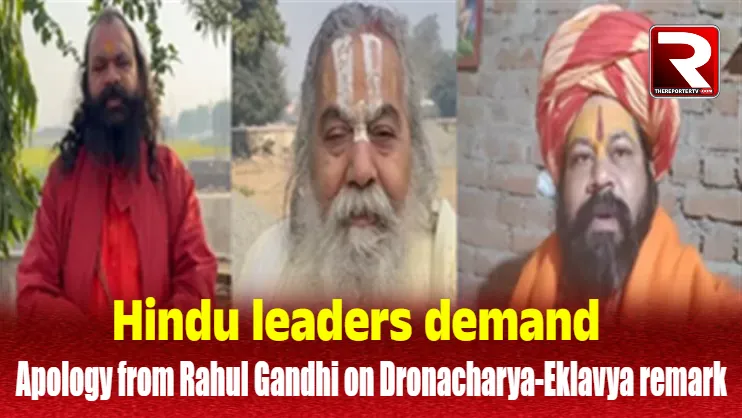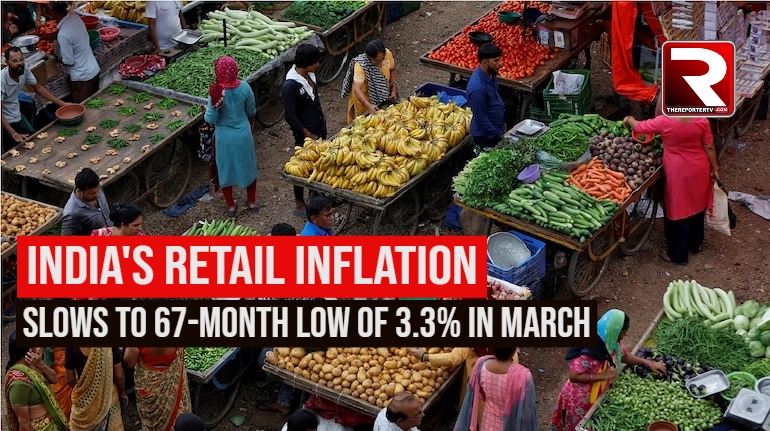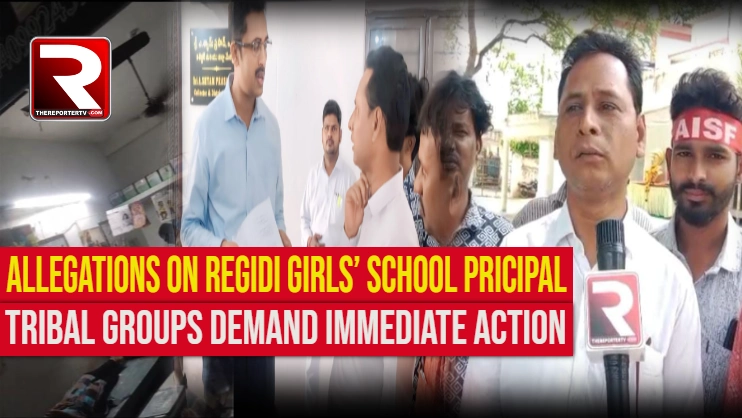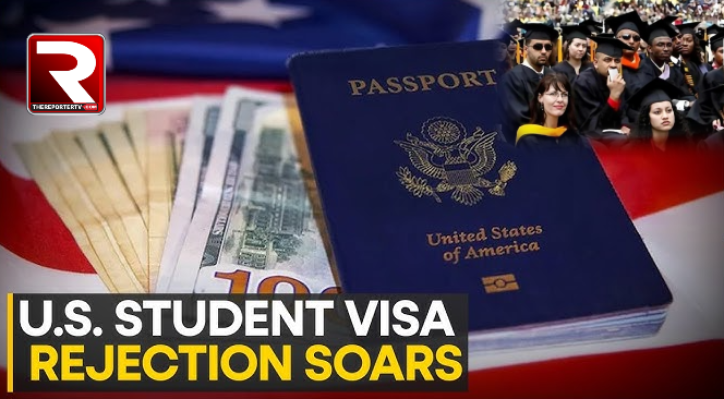New Delhi : A controversy erupted on Saturday after Congress leader and Leader of Opposition in the Lok Sabha, Rahul Gandhi, compared the actions of the BJP-led government to the ancient tale of Dronacharya and Eklavya from the Mahabharata. Gandhi’s statement, in which he claimed the Modi government was “chopping the thumb of the youth of the country,” drew sharp rebukes from religious leaders, who accused the Congress leader of misinterpreting Hindu mythology and disrespecting Indian traditions.
Gandhi, addressing a gathering, said that the Modi government’s policies were akin to Dronacharya cutting off Eklavya’s thumb, an act from the Mahabharata where the famed teacher denies Eklavya the right to learn archery, and later demands his thumb as Guru Dakshina. In the context of his speech, Gandhi suggested that the youth of India were being deprived of opportunities, just as Eklavya was denied the full benefits of his talent due to his social standing.
However, several religious figures have condemned Gandhi’s comparison, arguing that it misrepresents the essence of the story and misinterprets its cultural and philosophical significance.
Mahamandaleshwar Rupendra Prakash Maharaj of the Shri Panchayati Akhara Bada Udasin criticized Gandhi’s remarks as a deliberate distortion of the Mahabharata’s message. “Rahul Gandhi has misrepresented the story of Eklavya. In the Mahabharata, Eklavya voluntarily offers his thumb as Guru Dakshina out of respect for Dronacharya, not as an act of injustice. This episode reflects the revered Guru-Shishya tradition, where the disciple’s devotion is shown through sacrifice,” he said.
Maharaj further accused Gandhi of repeatedly targeting Hindu beliefs while remaining silent on issues related to Islam, suggesting that he avoids controversy involving the Muslim community due to political considerations. “This statement is an attack on Sanatan Dharma, and Rahul Gandhi has insulted the values that the Hindu community holds sacred,” he added. “He must publicly apologize and study the true meanings of our sacred texts before making such remarks.”
In addition to Maharaj, other religious leaders weighed in, calling for stronger condemnation of Gandhi’s comments.
Kamal Nayan Das, a prominent religious figure, lambasted Gandhi for his alleged misunderstanding of the Eklavya story. Labeling him “Hindu Virodhi” (anti-Hindu) and “Rashtra Virodhi” (anti-national), Das demanded strict action against the Congress leader. “Rahul Gandhi has proven himself to be a fool by misrepresenting one of the most respected stories of our culture,” Das said. “He is attacking the very heart of our values and culture with this false comparison.”
Raju Das, another spiritual leader, echoed similar sentiments, expressing dismay over Gandhi’s remarks. “Rahul Gandhi has insulted both Dronacharya and Eklavya, who are symbols of loyalty, discipline, and respect in Hindu tradition. Eklavya’s act was one of deep devotion, not one of victimhood,” he stated. “Such ignorance about our history and culture is deeply troubling, and Gandhi should apologize for misusing our sacred texts for political purposes.”
The controversy sparked a heated debate across both political and religious circles, with several BJP leaders also joining the chorus of condemnation. The ruling party’s spokespersons called for action against Gandhi, accusing him of undermining the nation’s cultural heritage.
On the other hand, Congress leaders defended Gandhi, asserting that his statement was a legitimate critique of the current government’s policies toward the youth. They argued that the comparison was metaphorical and intended to highlight the BJP’s alleged failure to address unemployment and provide opportunities to young Indians.
As the controversy continues to escalate, there have been growing calls for Rahul Gandhi to retract his statement and issue an apology for his remarks. Critics argue that Gandhi’s lack of understanding of Indian cultural symbols could further alienate him from Hindu voters, while his supporters insist that his intentions were misunderstood and that his comments were rooted in social concern rather than disrespect.
The issue has now become a focal point for both political and religious discourse, with significant implications for the ongoing national conversation about India’s future direction and the role of religion in public life.












